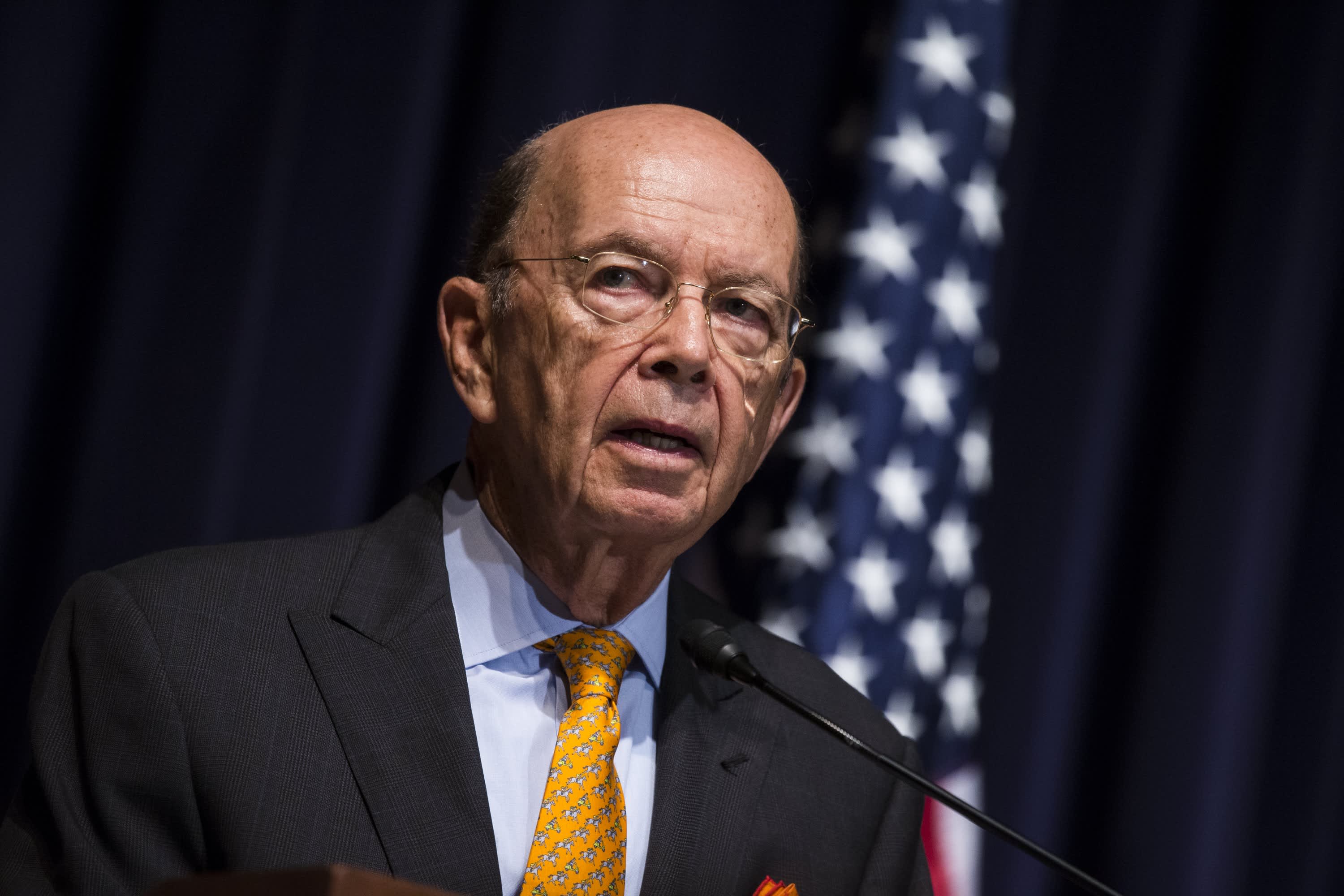
Secretary of Commerce Wilbur Ross
Samuel Corum | Anadolu Agency | Getty Images
SINGAPORE — China hasn’t done a good job in complying with international trade rules — and is the principal military and economic threat in the region, U.S. Secretary of Commerce Wilbur Ross said on Tuesday.
Speaking on the opening day of the Milken Institute Asia Summit, Ross said China accounts for 210 out of 539 anti-dumping and countervailing duty orders imposed by the U.S. In addition, China makes up a “good portion” of the U.S. entity list that restricts companies’ access to American suppliers for national security reasons, he said.
Anti-dumping and countervailing duties are slapped on products suspected of being sold at an unfairly low price. Chinese firms that have been put on the entity list include telecommunications giant Huawei.
“China continues to be both the largest potential market and the principal military and economic threat in the region,” Ross said at the summit, which is held both remotely and on the ground in Singapore this year.
Now that China has announced its recovery from the pandemic, we hope they — as a result — will meet the phase one two-year target.
Wilbur Ross
U.S. Secretary of Commerce
The secretary said the Regional Comprehensive Economic Partnership signed by China and 14 other Asia-Pacific countries will not tackle the “most sensitive issues” in trade. Those issues include subsidies to state-owned companies, protection of intellectual property and equal market access, he said.
Still, Ross said lowering regional trade barriers is important.
“It is essential that we continue to encourage freer and fairer trade everywhere while protecting our national security and our economic interest,” he said. “The U.S. is actually the least protectionist major economy.”
Progress of ‘phase one’ deal
U.S.-China relations have deteriorated since President Donald Trump took office. Over nearly two years, the two countries imposed retaliatory tariffs on each other’s products — triggering a trade war that threatened the global economy.
The tariff fight came to a pause this year when both sides signed the “phase one” trade agreement, which Ross on Tuesday said “deals with some of our bilateral issues.” Among other things, the deal commits China to buying at least $200 billion more in U.S. goods and services over two years — in 2020 and 2021 — on top of its purchases in 2017.
Ross said China has since purchased over $23 billion of U.S. agriculture products — or around 70% of the agreed amount for this year. However, China has bought “lesser percentages” of other items under the deal, he added.
“Now that China has announced its recovery from the pandemic, we hope they — as a result — will meet the phase one two-year target,” said Ross.
China is one of the few economies that is on a growth trajectory this year. The International Monetary Fund forecast that the Chinese economy will expand by 1.9% this year, while the U.S. economy is expected to contract by 4.3%. China was the first country to report cases of Covid-19, and appears to be among the earliest countries to bring the outbreak under control.
Source: CNBC
